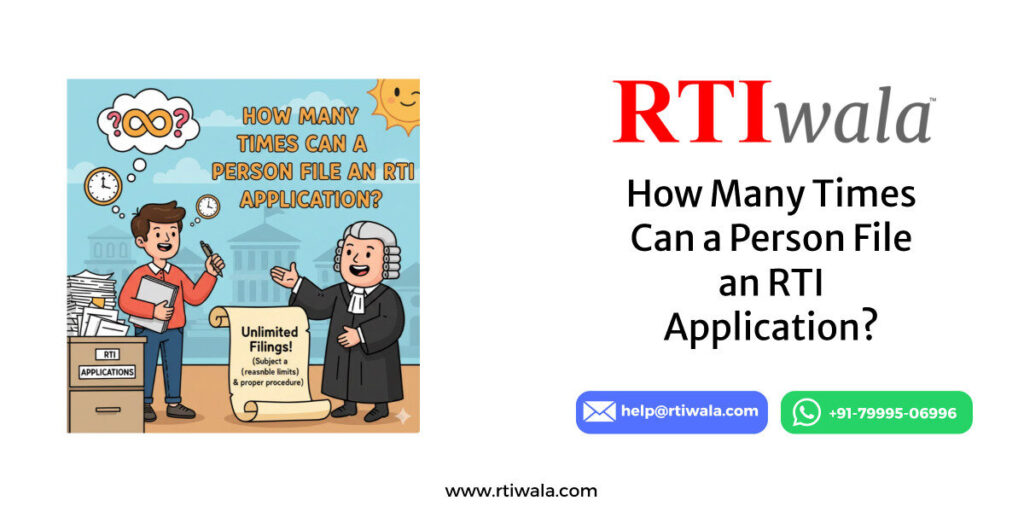Table Of Content
Introduction
If the police refuse to register your FIR, it’s not just frustrating—it’s a violation of your rights. According to Indian law, the police are obligated to register an FIR in case of a cognizable offence. When they don’t, you can use the Right to Information (RTI) Act to demand accountability and transparency.
This article explains what questions you can ask under RTI, how to file it effectively, and how RTIwala can help you at every step.
Why Use RTI When FIR Is Not Registered?
- To expose negligence or inaction by police officers
- To understand why the FIR was not registered
- To track the status of your written complaint
- To collect documented proof for future legal proceedings
What to Ask in Your RTI Application?
You can ask clear, specific questions like:
- What action has been taken on my complaint dated [insert date] at [police station name]?
- Why has an FIR not been registered yet?
- Name and designation of the officer responsible for FIR registration.
- Has my complaint been forwarded to any investigating officer? If yes, provide their name and contact details.
- Has my complaint been recorded in the General Diary (Daily Diary)? If yes, provide a certified copy.
- What are the departmental provisions for not registering an FIR?
- What is the standard timeline for registering an FIR?
- How many FIRs were registered on [specific date] at [police station name]?
- Is there any inquiry initiated based on my complaint?
- What legal remedies are available to me if my FIR is not being registered?
How to File an RTI for FIR-Related Queries?
- Address your RTI to the Public Information Officer (PIO) of the concerned police department.
- Write your application in English or Hindi on plain paper.
- Pay the ₹10 RTI fee via Indian Postal Order (IPO), demand draft, or online.
- Send it via Speed Post or file online via RTIwala for quicker processing.
How RTIwala Can Help You
- Expert Consultation: Get professional advice tailored to your situation.
- Online RTI Filing: Easy, secure, and efficient filing of RTI from your phone or laptop.
- Anonymous RTI: Protect your identity while requesting sensitive information.
- Custom Drafting: Professionally written RTI applications with strong legal language.
Conclusion
If your FIR is not being registered, don’t stay silent. The RTI Act is a powerful legal tool to hold authorities accountable and demand timely action. With proper documentation via RTI, you not only strengthen your case but also contribute to police transparency. If you’re unsure how to proceed, RTIwala can guide and assist you throughout the process—legally, confidentially, and effectively.






















































